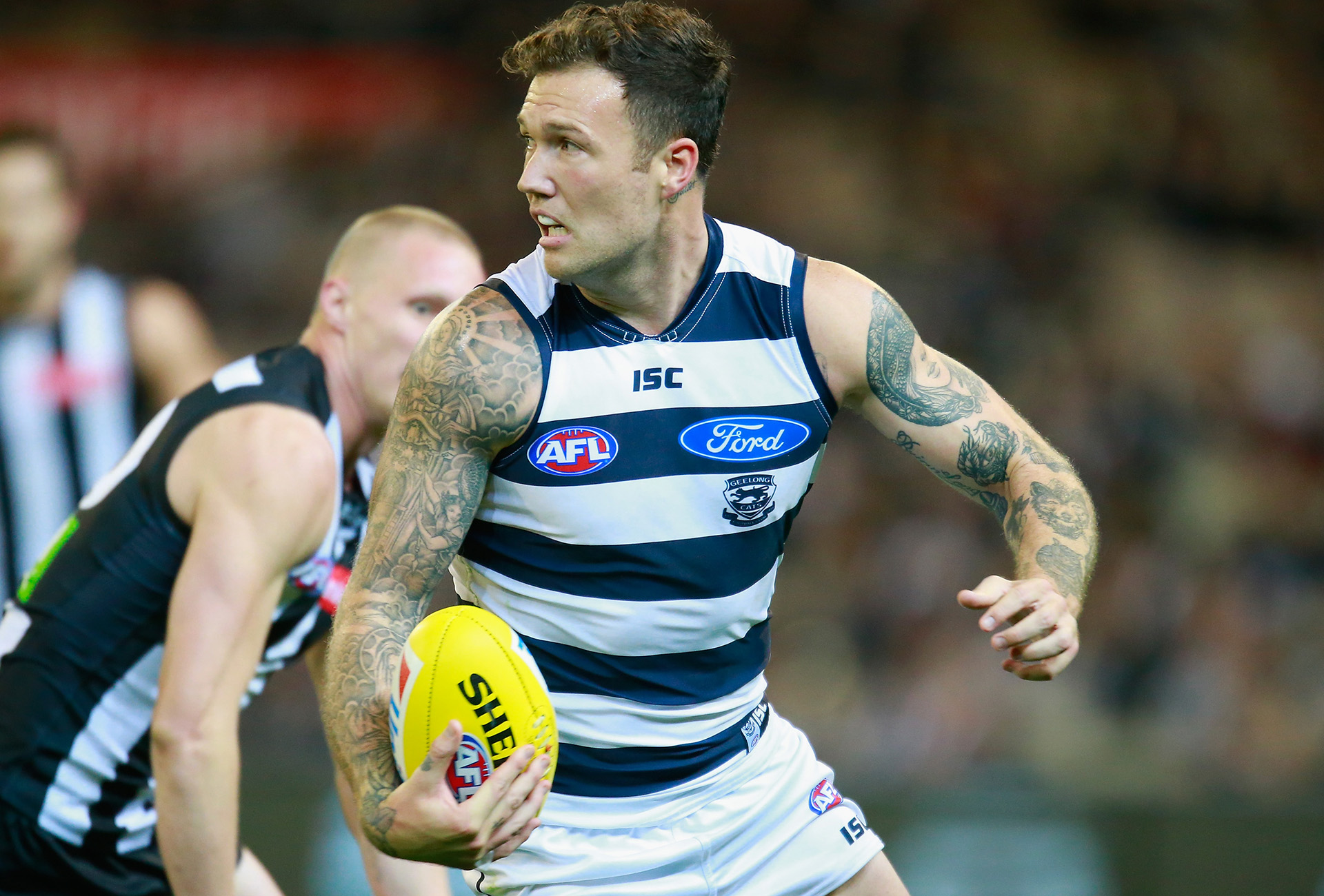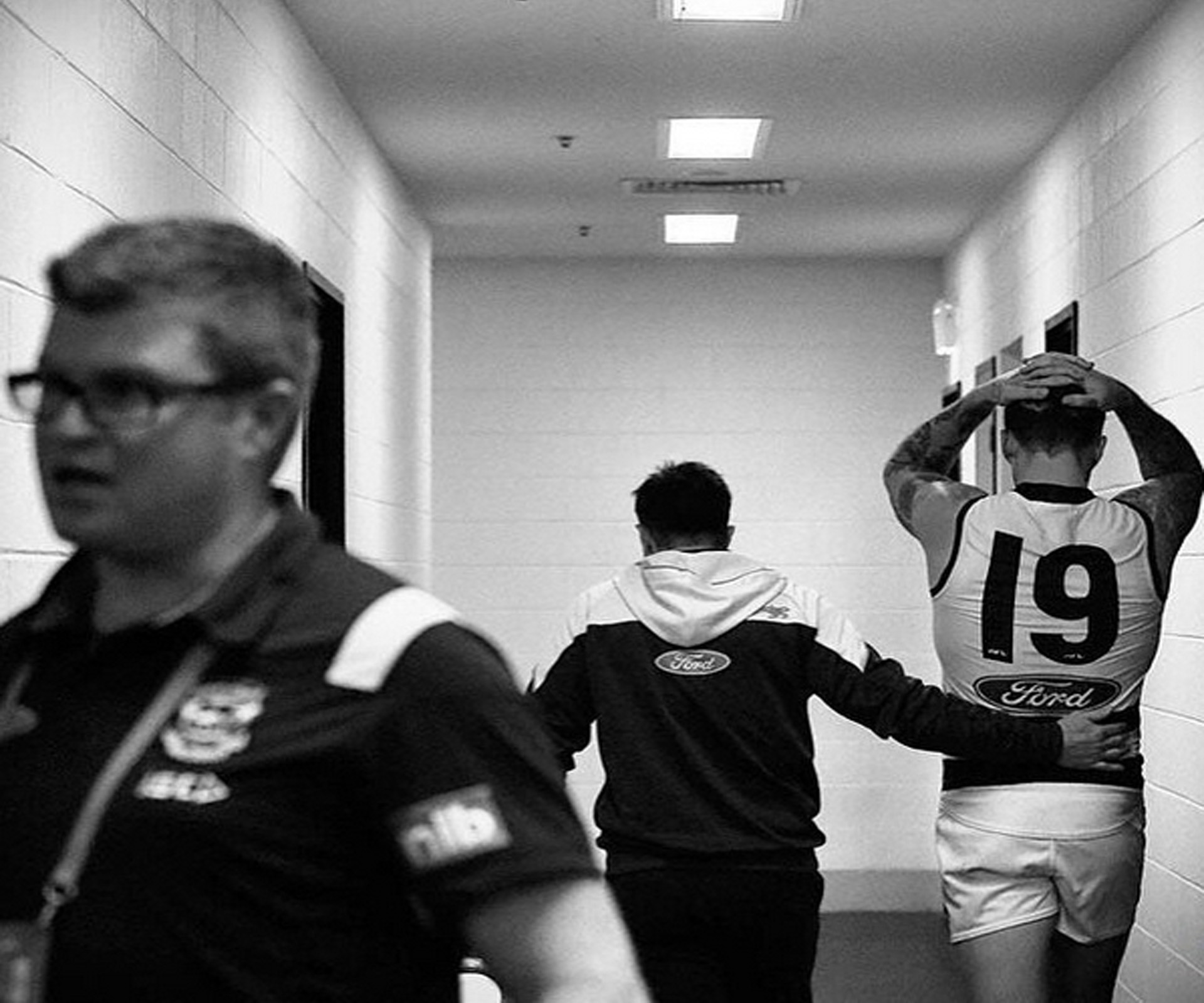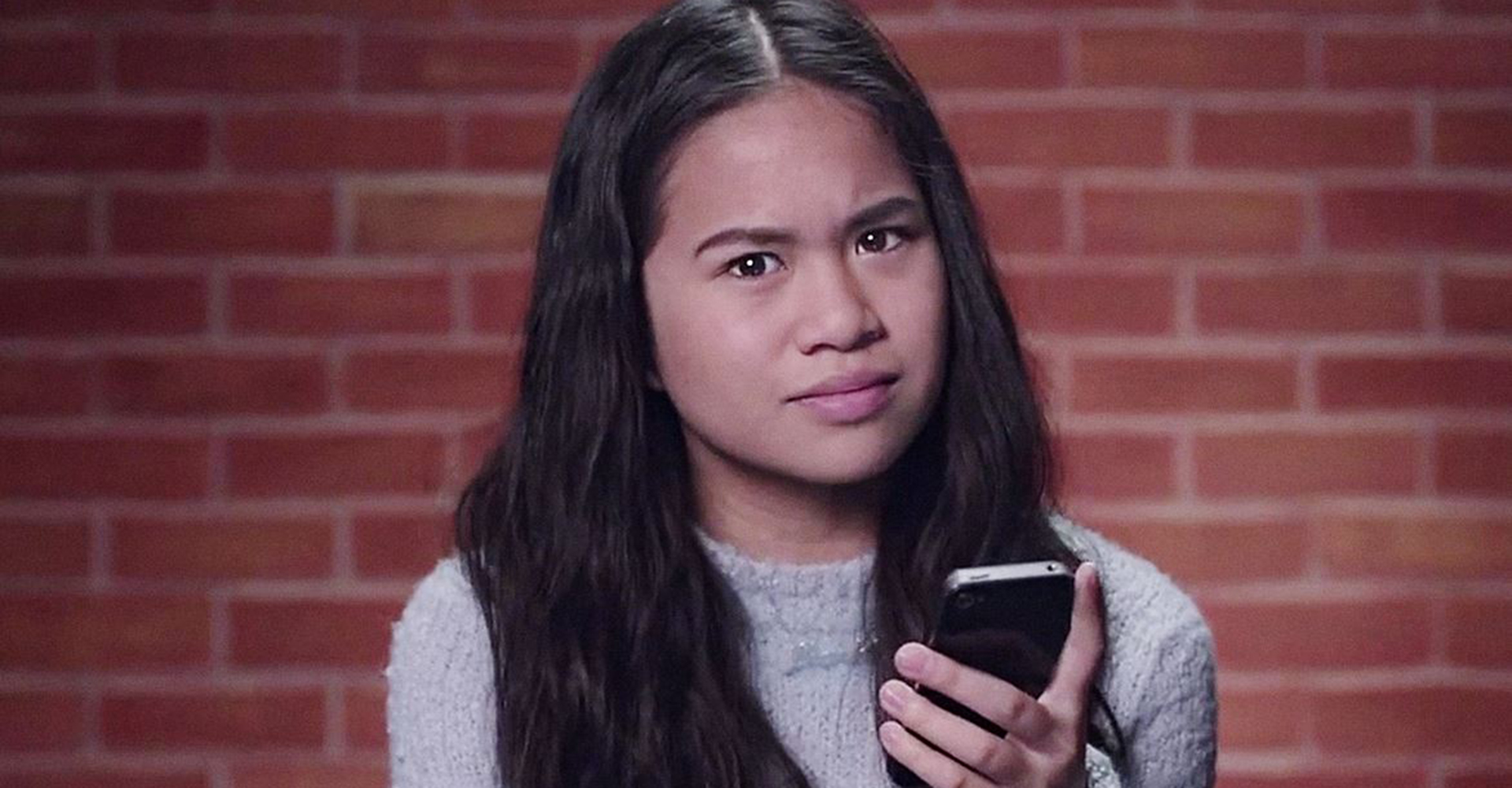This image of Geelong forward Mitch Clark leaving the pitch on Friday night being comforted by his Cats coach Chris Scott certainly said a lot about mental health in Australia.
The round six match had been a triumph for Geelong, a 41-point victory over Collingwood, but instead of walking away feeling like a winner 26-year-old Clark seemed overwhelmed.
Emotional, Clark was seen walking up the hallway with his fellow teammates but rather than heading into the sheds to take part in the post-match celebrations he walked into another room with his coach dutifully by his side.
Clark’s battle with the black dog became public in 2014 when he retired from professional footy after being diagnosed with clinical depression. After a break he considered a comeback and decided to heed some advice to change his environment so he joined Geelong at the start of 2015.
He has played five out of the past six games and achieved his 100-game milestone in round three but despite his return to professional footy it seems Clark’s most important challenge is off the pitch.

Cat’s player Mitch Clark.
During an interview with ABC Radio on Saturday morning coach Chris Scott – who was once also a teammate of Clark’s during his time at the Brisbane Lions – said the entire Cats family was rallying around Mitch to make sure he was getting all the support he needed.
“I’m going to be really careful speaking on Mitch’s behalf and make sure that we respect the sensitivities around it,” Scott said.
“I’ve been in contact with Mitch and spent a bit of time with him afterwards, but Mitch just needs to know that we are there for him.”
Late on Saturday, Clark posted an AFL Media photo of himself being comforted by Scott on Instagram and poignantly addressed his struggle with depression.
He wrote: “It’s hard to put last night into words. In no way is my situation more important than the great win by the boys last night. I wish this would have stayed out of the media, but also understand that’s the world we live in. Depression makes very little sense and rears its head whenever it chooses and unfortunately last night was one of those times. Like I have said I’m nowhere near ‘cured’ and am still learning how to best deal with my dark days. I’m very fortunate to have such great support around me and grateful for all the messages I have received. Please if you’re struggling, reach out and ask for help. You’re not alone #youareloved”
Clark’s post was met with overwhelming positivity and support with fans leaving messages praising his decision to talk openly about his illness.
@Allanbiohazard wrote: “So much respect mate, inspiration to us all. Some weeks people can’t make it out of bed and you’re out there living your dreams. #youareloved”
And @Chaseburns added: “It’s a strange one isn’t it? Depression. You feel down when everyone’s up…”
The black and white image is a powerful reminder that while they might seem like titans on the pitch, even footy players are not immune to the pitfalls of mental illness and depression.
Possibly the most important message to come out of Clark’s words is to tell people to “ask for help.”
According to The Black Dog Institute Clark is just one of the 26 per cent of young Australian’s experiencing mental illness every year with the onset typically around mid-to-late adolescence.
The Black Dog Institute also cites that 65 per cent of people with mental illness do not access treatment so the worry is that illness could lead to feelings of hopelessness and suicide.
On their website The Black Dog Institute states that “men are at greatest risk of suicide but least likely to seek help.”
Adding: “In 2010 men accounted for over three-quarters (76.9 per cent) of deaths from suicide however, an estimated 72 per cent of males don’t seek help for mental disorders.”
Mitch’s bravery in being open about his struggle is a step in the right direction to break down the public stigma about depression and to give a clearer picture of mental illness.
Mitch Clark, now more than ever… #youareloved.
If you or someone you know are struggling with mental illness contact Lifeline on 13 11 14. If you feel like there is immediate danger please call 000.
Below: I Quit Sugar’s Sarah Wilson opens up about her struggle with anxiety and depression.


